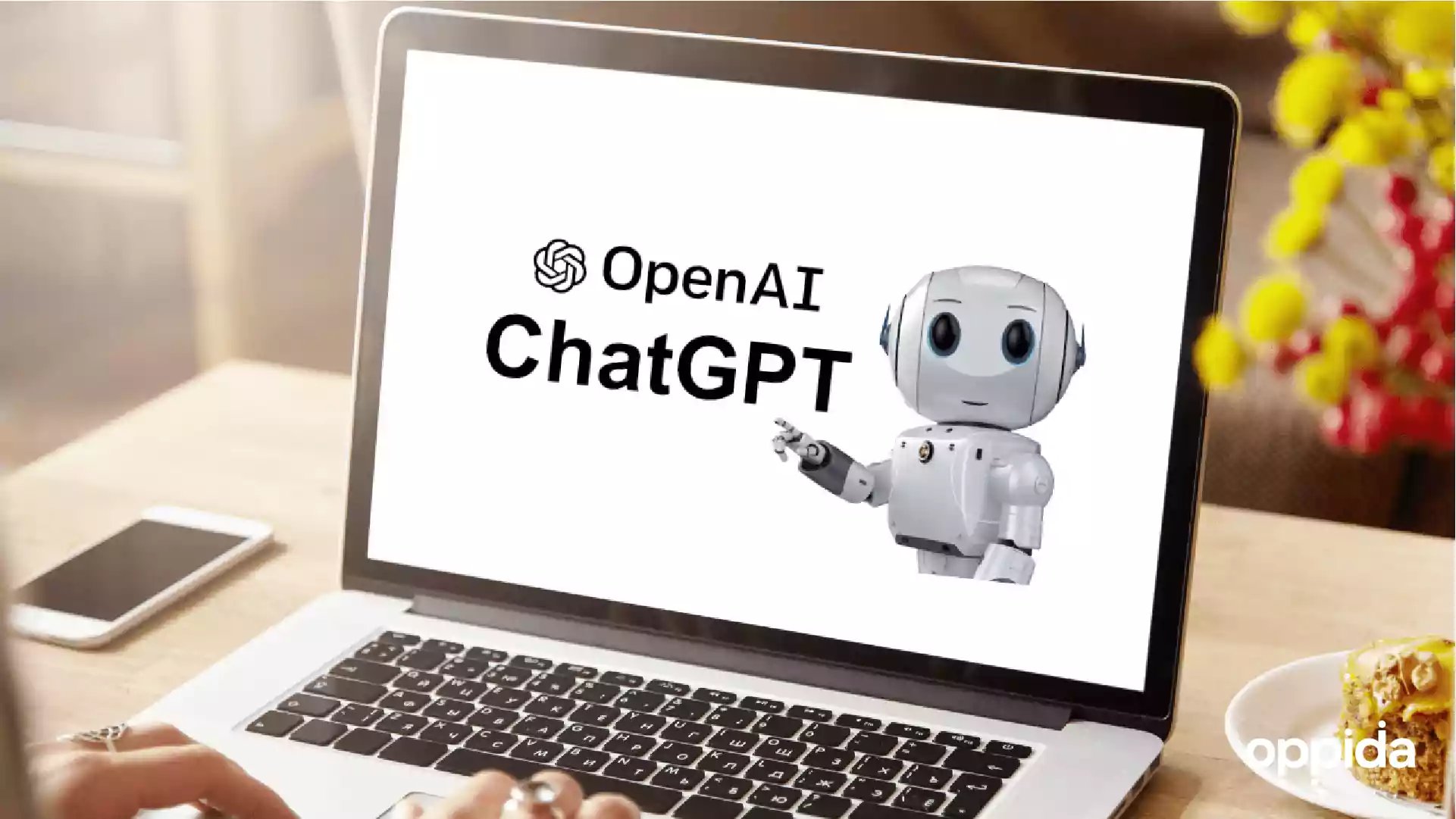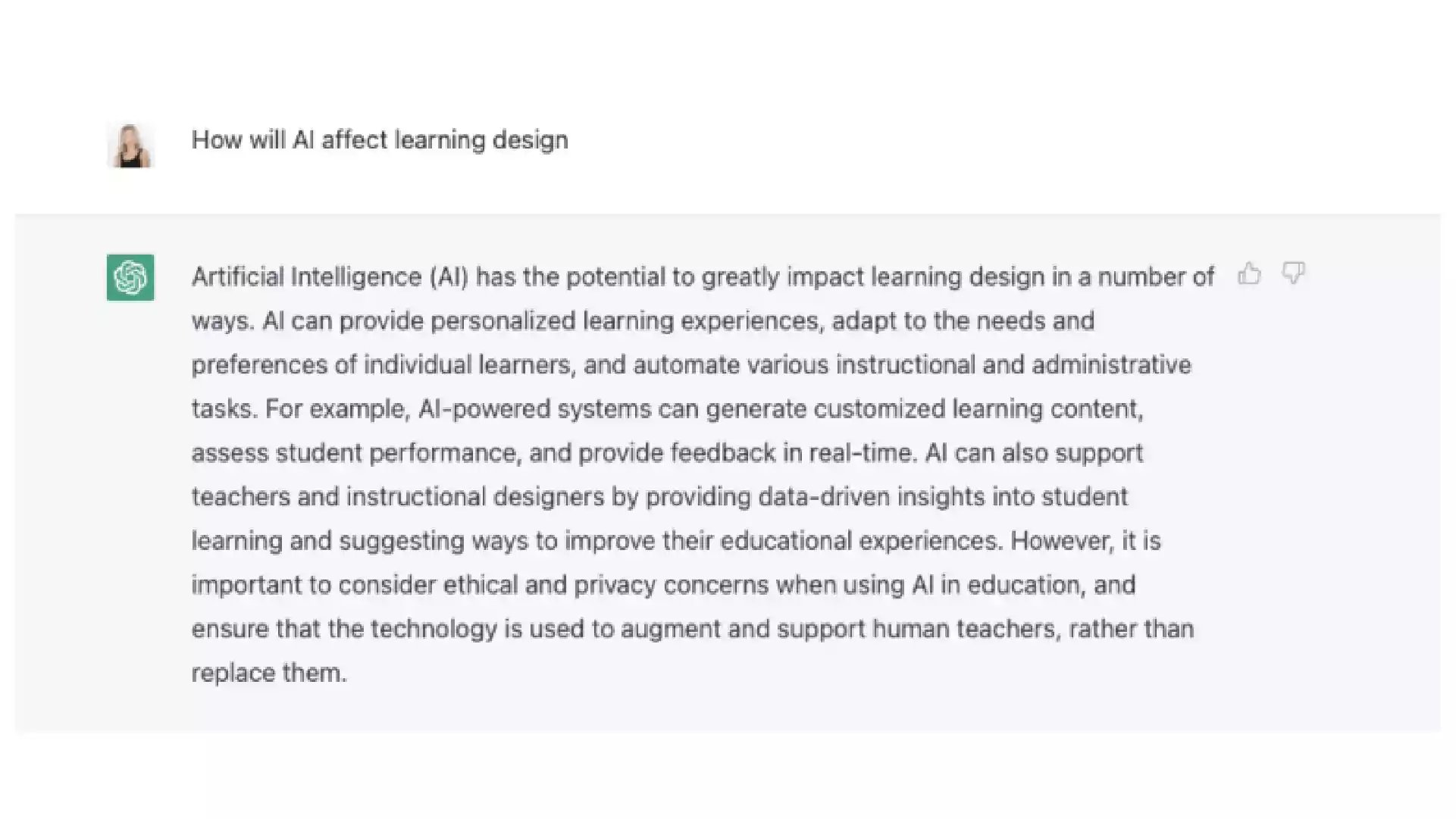As promised, here is part 2 of the findings from Oppida’s brand strategy work on the potential of...
How will ChatGPT affect Learning Design?
You would be hard pressed NOT to have heard of Open AI’s ChatGPT by now. It has taken the world by storm (especially the education sector). How will ChatGPT affect Learning Design?

What can it do? How will it change things? Will we still have a job? Is this really where we want humans to go? Is this TOO much tech progress?
All these questions are valid. However, the truth is that it’s here and it is here to stay. Just like every other ‘game changing’ technology of the past.
Last week Bianca Raby filmed a video for her YouTube channel aimed at Teachers and the positives that I see coming from ChatGPT making access to sophisticated AI mainstream. Don’t be fooled, AI isn’t new. It’s just that now we can all access it freely.
Check out the video here:
How will AI affect Learning Design? (according to the AI)
Here is the response that ChatGPT gave us to this question:

Honestly, not super insightful… nor practical. It’s answer doesn’t really take into consideration the people behind learning designs so it’s an impersonal and out of context response. It can also tend to repeat itself.
So, let us prove why we still need a human to communicate complex things!

How will AI affect Learning Design? (according to a human)
Here are the top areas I see AI making the biggest impact on Learning Design (considering the people behind the designs and what AI will enable them to do also).
- QUALITY: Due to the time saving and automated benefits of AI we should see a rise in the quality of the learning experiences. If LD’s can use AI to quickly re-word something, trim a paragraph or edit a dense piece of text into plain English this benefits everyone. One of the biggest drivers of course development costs is the learning designer’s time. We should, in theory, be able to build better experiences for less which benefits all.
- PERSONALISATION: There is huge potential here but there is still the need for considered design in order to have an AI personalise for good. We are most excited for the INSTANT feedback that AI can provide. This is often what is lacking in online learning.
- ASSESSMENT: AI can both HELP and HINDER assessment online. Having more automated assessments will help educators. However, now that ChatGPT is in the hands of the students they will also be able to use it to do the work for them. This will push learning designers to be more creative with assessments and probably open up a whole new conversation about what it means to assess learning in 2023 and beyond. There is already a flood of apps coming to the market to detect AI generated responses.

Remember when the internet came along we thought we would no longer need to learn anything as Google has the answer? Well, ChatGPT is really just a super pimped up Google. It still has its limitations and just like “watching a talk” doesn’t translate into learning unless something is applied. The same will go for asking ChatGPT a question. You can read the answer but it won’t mean you have cognitively progressed in the direction of a set learning outcome.
Like all the tools that have come before us with the claim to make our lives easier, better or more exciting AI will need to be used correctly. As for Learning Designers and the experiences that they design – well again it will be about HOW they embed this into their daily workflow and final products. Learning Design is still a relatively new idea to some organisations so let us use AI to ‘raise the bar’ across the board!




